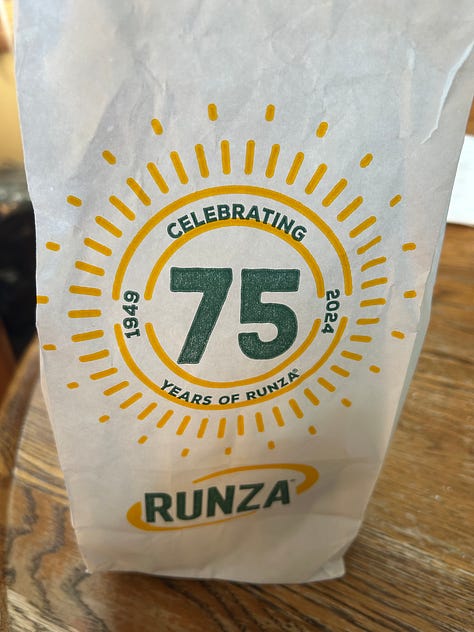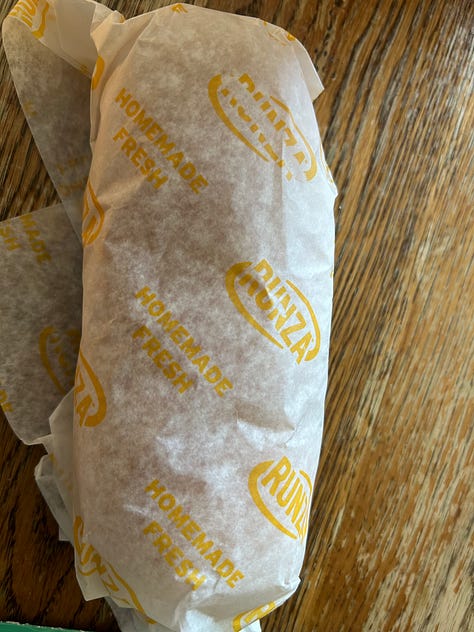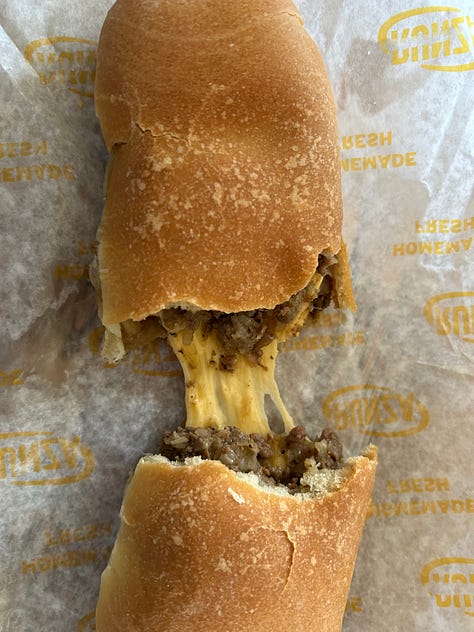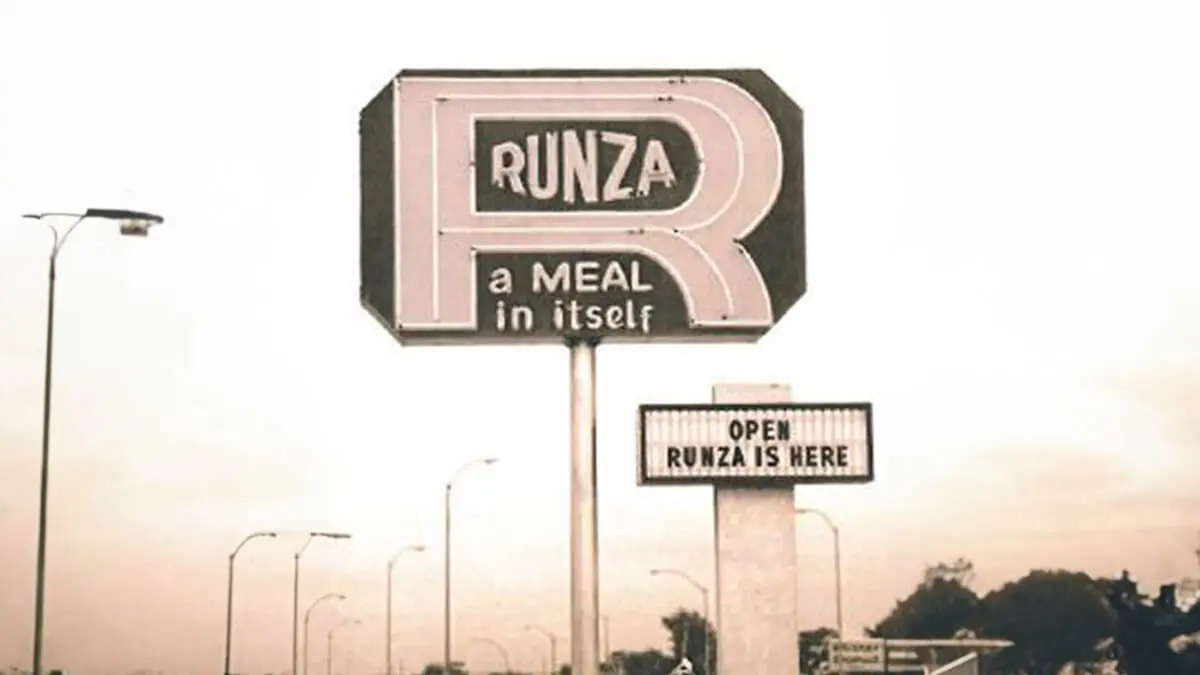“Hey, Britt—” my grandma’s voice traveled down the steep, gray-lacquered stairs into the cavernous basement.
I stopped fiddling with the out-of-tune piano keys and cocked my head to the right, turning my left ear, my good ear, up to the ceiling.
“Yeah?” I hollered back, a lilt of curiosity in my response as I wondered what she wanted.
It was summer, and I was visiting my grandparents in Nebraska, like I had every summer since we first moved to Texas. Those dog days were spent palling around the neighborhood with the seven—yes, seven—kids who lived across the street, playing catch with my grandpa in the backyard, and, possibly my favorite pastime, digging around for hidden treasures in the basement.
“Do you want some lunch?” she asked. I sat there momentarily considering if I was hungry, then stood up from the rickety, wood-chipped bench and made my way across the basement to the foot of the stairs. I grabbed the wooden railings to my left and right and began hopping on and off the bottom step.
“Yeahhh,” I droned, aware now of the gurgling noises rattling around in my stomach.
“Well, what are you hungry for?” Her question was met with silence and more fiddling, and finally, her impatience got the best of her. “What about Runzas?”
I could tell by her tone that the conversation was over, and I conceded to her suggestion. “Runza it is.”
“What the hell is a Runza?” friends would later ask me when I’d reflect on my favorite foods back home. I’d explain to them that it’s kind of like a pirog.
“What’s a pirog?1” they’d ask.
“Sort of like a pie,” I’d reply.
“Oh,” they’d nod, assuming understanding. “So, it’s a dessert?”
“No, no, no,” I’d exclaim and then start the comparison game anew. “You’ve had a Hot Pocket, right?”
“Sure!” they’d say.
“Well, it’s like that, but doughier and stuffed with cabbage, beef, and onions. It’s a Midwest thing.” The Hot Pocket analogy would always land.



We hopped into my grandma’s car, and she pulled out of the driveway, past my grandpa’s hideous, pale yellow El Camino and the familiar houses that lined the sides of Orchard Avenue. As we turned onto Oak, my grandma adjusted the stereo knob, and the soft sounds of the Beach Boys came crooning through the speakers:
“Wouldn't it be nice if we were older? Then we wouldn't have to wait so long.”
Though I always felt older than I was, my palate certainly hadn’t caught up with my soul, and as we neared the Runza drive-through on Q Street, I muttered something indistinguishable about how the buns were always dry and their crinkle fries sucked. The truth I dared not speak to my grandma was that I thought Runzas were bland.
I was never a picky eater, but at twelve, I had a penchant for strong flavors, especially fermented foods. I would casually snack on pickles throughout the day, consume forkfuls of sauerkraut straight from the can, and put away half a jar of green olives in a single sitting. I loved brine, and it was not uncommon to find me sipping pickle juice out of a glass on a hot day.
I remember begging my grandpa to make me his staple homemade snack. He’d grab a cucumber from the garden, shave the skin, and cut it up. Then, in a bowl, he’d douse the thin slices in vinegar, topping them off with salt and pepper. Sometimes, he would toss in some chopped onion—red or white—and on one occasion, he tried to convince me it was even better with pickled gizzards2, but I drew a hard line in the sand there. He was ornery, and he knew I knew it.
We’d sit out on the back deck together, savoring the sour sting of the acetic acid on our tongues, while watching an array of colorful birds swoop down to pluck seed from his handcrafted feeder.
I’ve always attributed this fondness for fermented foods to my Czech roots3—that Slavic need to preserve. But the Runza, though born out of eastern Slavic traditional cuisine, wasn’t situated along the spectrum of pungent flavors I craved in my youth; therefore, I had no use for it.
But on I went, summer after summer, eating Runzas—homemade Runzas, store-bought Runzas, Runzas from Runza4, the local fast-food chain founded by Sarah "Sally" Everett, the woman generally considered to be the one who christened the Runza and popularized the dish5. It didn’t matter where they came from; they all tasted the same to me: bland.

As the years went by and I grew older, my life inevitably became busier. I began traveling for select softball, and my summer trips to Nebraska got shorter and shorter until, eventually, I was no longer able to visit.
By my junior year of college, my schedule allowed for longer trips back to Nebraska. On one of those visits, my grandma and I were sitting in the living room reading when she looked up and asked, “Are you hungry?”
Despite my memories of bland flavors, I decided to give the Runza another shot. To my surprise, it was nothing like I remembered. The combination of cabbage, onion, and beef had a tangy richness, enhanced—though I couldn’t be sure—by Worcestershire sauce.
I quickly devoured the last few bites of my Runza, balled up the parchment paper, tucked a strand of hair behind my ear, and leaned across the table to dip a crinkle fry in ketchup.
Notes
My maternal lineage can be traced back to the Moravian region of Czechoslovakia. My great-great-grandmother, Antonia Slerka, was born in 1890 in the town of Zdar on the Bohemia/Moravian border about a two hour drive southeast from Prague. While my great-great-great-grandfather, Rudolf Hobza, was born in 1857 in Jihlava, the capital of the Vysočina Region.




Loved reading this! So many great memories you had with them. ♥️